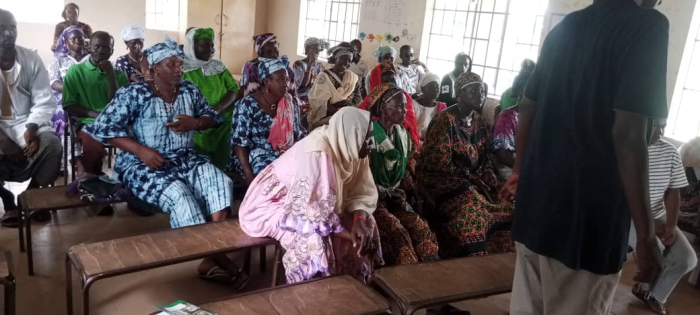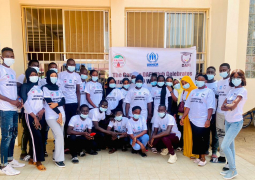
The initiative aims to empower rural communities with knowledge and tools to preserve the environment, reduce deforestation, and enhance climate resilience.
Speaking at the event, Chief Mam Demba Jallow of Sami District welcomed the project, describing it as a vital intervention for rural Gambia. He emphasised the need for collective responsibility in environmental protection and warned against illegal tree felling.
“I urge all village alkalos to refrain from cutting down trees without approval from the Ministry of Environment or the Regional Forestry Directorate,” Chief Jallow stated. “If I receive reports of such illegal acts, the law will be enforced accordingly.”
He further highlighted the adverse effects of deforestation, including reduced rainfall, persistent drought, and declining agricultural productivity. The chief expressed gratitude to the Gambian government for approving the project and reaffirmed his commitment to national development.
Ousainou Touray, the GEF6 Project Coordinator, underscored the importance of environmental preservation, noting that the initiative also supports women’s empowerment through gardening and skills development.
“If we preserve our environment, it will attract tourism to rural villages and boost the national economy,” Touray said. “The project also includes the construction of skills centres for women and girls, and tourism hubs across various communities to generate revenue and create employment.”
Touray called on alkalos, traditional leaders, and forestry officials to actively monitor and protect the environment, stressing that the survival of both humans and wildlife depends on it.
Musa Samura of the Kuntaur Area Council and Musa Jobarteh, Regional Wildlife Officer for CRR, echoed similar sentiments. Both pledged their support for the project, describing it as a valuable complement to government efforts in environmental protection.
“In The Gambia, our livelihoods are closely tied to the environment,” Jobarteh noted. “Preserving it will enhance agricultural productivity, protect wildlife, and promote eco-tourism.”
Local residents, including Mama Sanneh and Memba Jawneh from Kunting, and Wally Sowe from Wellingara, expressed concern over the growing impact of deforestation. They lamented the scarcity of large trees and the rise in charcoal production, which they identified as major contributors to climate change and drought.
“If there are not enough trees, rainfall will decrease, and agriculture will suffer,” they explained. “We must act now to reverse this trend.”




